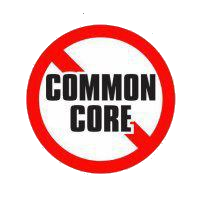There are two organizations that will be working with NH teachers and will be developing the new PACE assessment program in New Hampshire. Here is some information on those organizations and the people behind them.
Remember, the NH DoE is telling us that these are “local” assessments developed by our teachers. Local assessments that have to be validated by the NH DoE (that’s hardly local control folks!) and that the teachers will be working “closely” with these organizations to develop the assessments.
The Feds now control our local schools and the State facilitates it.
1) NCIEA
Scott Marion (Exec. Dir. of NCIEA, a non-profit developing PACE with the NH DoE) and Rye School Board member:
“Competencies are statements of critical knowledge, skills, and often DISPOSITIONS that go beyond content standards. They reflect fewer and bigger major ideas of the discipline than more discrete content standards. High quality assessment systems are needed in order to support inferences related to student learning of competencies, especially if the competencies (learning targets) reflect major concepts and skills of the discipline. That is, we need multiple assessments to accurately assess student learning of these complex sets of knowledge, skills and DISPOSITIONS. Further, these assessment systems must include the types of tools capable of measuring students’ learning of these cognitively complex domains. More bluntly, performance-based or similar types of assessments must play a central role in the assessment system.”
George Will explains what “assessing” dispositions means: “Many education schools discourage, even disqualify, prospective teachers who lack the correct “disposition,” meaning those who do not embrace today’s “progressive” political catechism. Karen Siegfried had a 3.75 grade-point average at the University of Alaska Fairbanks, but after voicing conservative views, she was told by her education professors that she lacked the “professional disposition” teachers need. She is now studying to be an aviation technician.”
Folks, through the PACE assessments they will be grading your child’s dispositions. That’s not only subjective, that has nothing to do with testing academic knowledge.
https://www.youtube.com/watch?v=IVl84r0fF8s
In this video if you fast forward to 1:24:00 you can listen to a parent confront Scott Marion on his condescending opinions towards parents who have concerns over the Common Core Standards.
In Marion’s presentation to parents in NH, he also defends the Common Core/ Smarter Balanced Assessment. The same assessment that we are now being warned about.
“The Smarter Balanced Common Core Mathematics Tests Are Fatally Flawed and Should Not Be Used. An In-Depth Critique of the Smarter Balanced Tests for Mathematics”
Scott Marion was just appointed Executive Director of the National Center for the Improvement of Educational Assessment in Dover, NH. This non-profit organization just landed a very lucrative role in the development of NH’s Performance Assessment for Competency Education (PACE) program, which is aligned to Common Core standards. This PACE program is part of an existing pilot program in four school districts and also featured in the NH Department of Education’s 2015 No Child Left Behind WAIVER application. If approved, Scott Marion’s company could provide Common Core aligned assessments to every New Hampshire school district. Why would Scott Marion bite the hand that feeds him? It’s hardly surprising that he defends Common Core.
2) Here’s the other non-profit organization that is developing the PACE program with the NH Dept. of Education, the Center for Collaborative Education:
***** Quality Performance Assessment: Since the fall of 2008, CCE has partnered with the NELLIE MAE Education Foundation to explore the power of performance assessments to transform student learning and teacher practice. In the process, CCE established the Quality Performance Assessment Initiative (QPA), a collaborative effort to design a performance assessment model that measures students’ critical thinking, problem solving and communication skills—the activities required by the COMMON CORE State Standards, and that are required for college and career readiness.
In its initial phase, the QPA team has worked closely with a diverse group of 20 schools to build teacher assessment literacy, strengthen and document local assessment systems, and implement common performance assessments across schools. This work has led to creation of a set of COMMON CORE-aligned performance tasks, with teacher materials and student work samples that have been field-tested in schools. The experience and insights of educators have also yielded field-tested professional development models and tools to support the use of performance assessments.
Funded by GATES, Nellie Mae and the US DOE
Dan French, Executive Director, Former Director of Instruction and Curriculum for the Massachusetts Department of Education, and special educator. Ed. D. from UMass./Amherst. Author of 1998 Phi Delta Kappan article, “The State’s Role in Shaping a Progressive Vision of Public Education.”
He used to work for the MA DoE in the mid-1990s and left (you can speculate over the reasons) after attempting to prevent the development of academic standards in both ELA and history/geography. He has no background knowledge in any area. His position at the MA DoE involved student attendance.
Richard Dubuisson, Consultant, has worked in diverse educational environments as a teacher, academic director, and consultant. Most recently, he worked with several high schools in Massachusetts and New Hampshire as a school change coach. Prior to that Richard co-founded Year Up, a college-credit earning, workforce development program in Boston that became a national model. Richard is a former high school math teacher and is committed to school improvement as a path to closing the opportunity divide in this country.
Jacqui Holmes, Program Assistant, has volunteered as a teaching assistant in the Lewiston Public Schools, working primarily with English Language Learners. She recently earned her Bachelor’s degree from Bates College where she studied Latin American History, Women and Gender Studies and Education.
Competency Based Education is a rehashing of the failed Outcome Based Education from the 1990’s. The focus is on dumbed down workforce training and changing values in children versus improving literacy and academic excellence.
It’s important to know who is pushing this in New Hampshire and why. There’s a lot of money to be made off of the local taxpayers.
